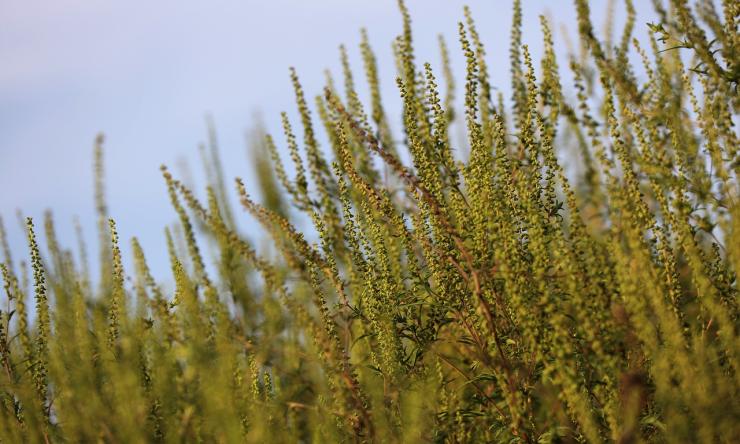An early start to spring allergies
Though it technically may still be winter, spring allergies in Houston are out in full force. An expert with Baylor College of Medicine gives an upcoming pollen and mold forecast and reviews how to properly use some allergy relief options.
“All seasons can bring different allergens, but most people experience the worst symptoms during the spring,” said Dr. David Corry, professor of medicine in the section of immunology, allergy and rheumatology at Baylor. “There is a lot of moisture in the ground right now so we’re expecting a very robust pollen season.”
This spring, Houstonians will face a plethora of allergens. March and April will bring lots of tree pollen from birch, cottonwood, maple, mesquite, ash, pecan, oak, mulberry and some pine trees. Cedar pollen may also still be in the air as the peak of cedar was in February. May will see tree pollen and weeds like dock, sorrel, lambsquarter, plantain, sagebrush and scale begin to pollenate. Bahia, Bermuda, St. Augustine, blue and rye grasses will begin blooming in May and will peak by the beginning of June.
“Although these plants are genetically programmed to bloom around this time of year, local climate also plays a big role in dictating this timetable,” Corry said. “Was the proceeding winter warmer than usual? How much rain was received up until springtime? Are current temperatures warmer than we’re used to seeing?”
The right way to keep allergies at bay
Limiting the impact of these allergens takes some effort, but there are many tools at your disposal to keep you going about your day.
Allergy reports are free public resources that provide information on allergen levels in the air and should be monitored to determine what level of preparation you need to take for that day or week. They are especially helpful if you know what allergens you are sensitive to and for people with chronic pulmonary diseases.
Over-the-counter antihistamine tablets can be taken once every 24 hours and begin to work about 30 minutes after ingesting them. Although most tablets in circulation have been formulated to prevent drowsiness, some people may still experience sedating effects and should plan to take these before bed. If the once-a-day routine is not proving effective, Corry encourages visiting an allergy expert as it is not recommended to take multiple tablets in a 24-hour period without supervision.
Sinus rinses may be uncomfortable for some; however, they are one of the most effective methods for clearing pollen and other allergens from your airways. Warm distilled water should be used as there is a very small chance of parasites in non-distilled water breaching the lining of your nasal passages, sinuses or perforations in the skull where the olfactory nerves are and causing a serious infection in the brain. Distilled water on its own is not advised for a rinse and should be supplemented with saline solutions often included in nasal rinse kits. When dissolved, these will correct the salt levels in the water and prevent irritation or damage to the airways during this process. Corry says that as long as you are using distilled water treated with a saline solution, people can perform a nasal rinse multiple times a day.
Some nasal sprays deliver antihistamines via a solution introduced directly into the nose. This allows the sinuses to be fully coated with the drug and reduces the effects of pollen and other allergens. Some over-the-counter nasal sprays also have a mild steroid that will reduce inflammation in the nasal airways, which can be beneficial for those with inflamed sinuses caused by excessive nose blowing or the body’s natural response to allergens.
“There is not much of a difference in effectiveness of antihistamines delivered via tablet or nasal spray, just find which method works best for you,” Corry said. “A nasal rinse supplemented with an allergy tablet or nasal medicated spray is a very good way to prevent bothersome allergy symptoms.”
Escalating allergy relief
In addition to medications, physical exclusion of allergens from the nose using facemasks is very effective when high levels of exposure to pollens or molds is anticipated. For example, facemasks can be very helpful to persons who are grass pollen allergic, yet must mow their grass. People who find that such easily accessible treatments are not enough may need to work with an allergist to intensify their allergy relief strategies.
Immunotherapy regimens are when small amounts of combinations of allergens are introduced to the body via tablets or allergy shots, allowing the body to ease into immunity against these allergens over time. These therapies are most effective prior to upcoming allergy seasons, so it’s important to know when your specific allergen will bloom.










